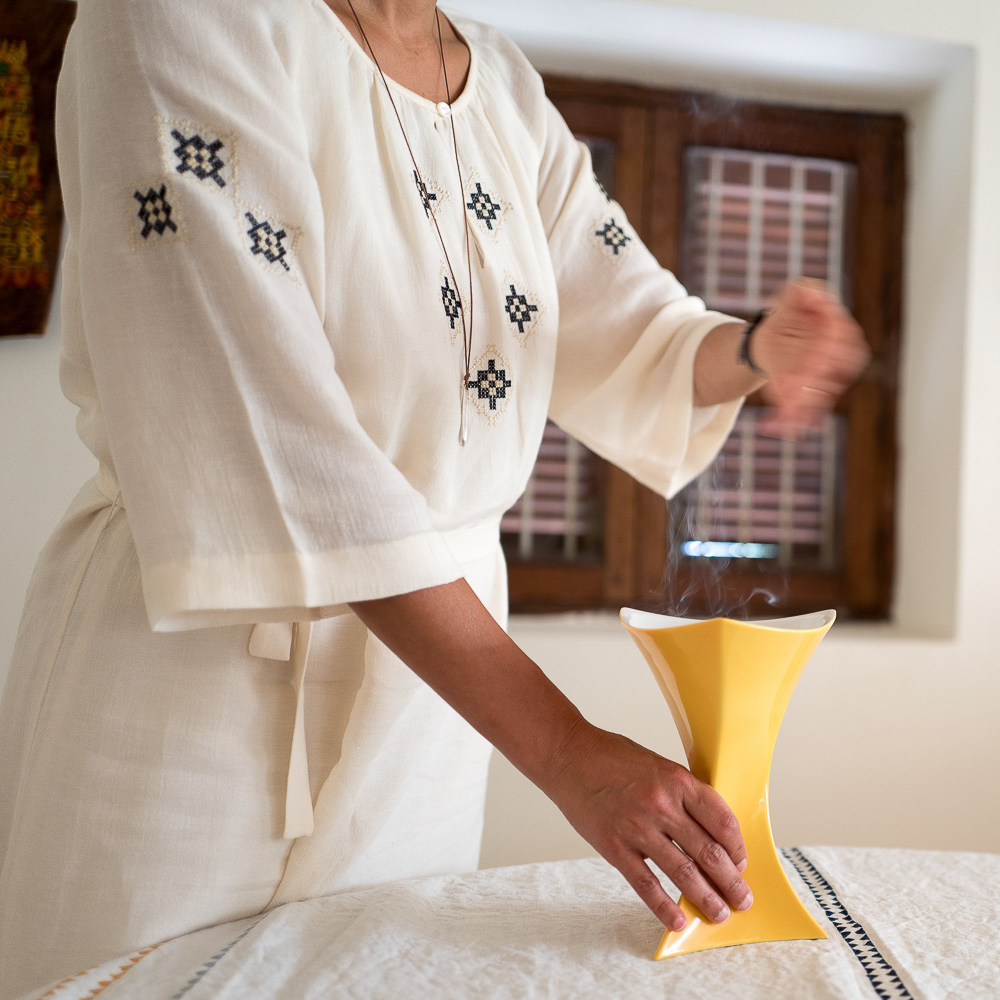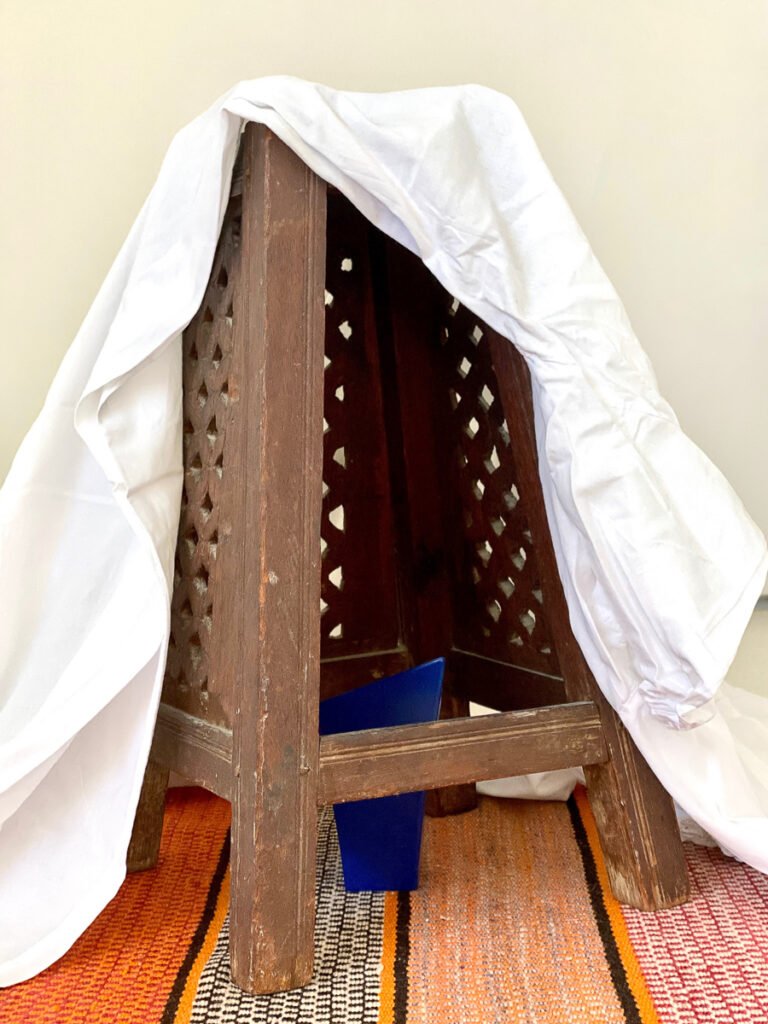
A Miskan Mubkhar incense burner from Zeri crafts
Kuwaiti designer Laila Al Hamad speaks about the meaning of smell in Arab cultures and how it connects people together.
One of the enduring themes of our journey is the meaning of ephemeral objects. We tend to see value in objects of lasting worth – as artefacts that survive millennia to rest in our museum shelves, or works that can be collected for their artistic value. But when we look at the kinds of objects that have meaning in the wider world, they are often of fleeting presence. We can look no further than the garland itself, as an object woven together with flowers that will last only a couple of days. What worth can that be? Here we need to consider other cultural contexts, like the value of offerings.
In this podcast, we look at perhaps the most ephemeral substance – smell. What is the possible worth of objects related to smell, such as incense, perfume or soap? We explore this Laila Al-Hamad, a Kuwaiti designer who has previously shared her story on Garland about the fraught nature of craft in the Gulf.
Further references
✿
✿
An extract concerning tarragon from Nizar Qabbani’s poem Damascus, What Are You Doing to Me
When I was a diplomat in Britain
Thirty years ago
My mother would send letters at the beginning of Spring
Inside each letter . . .
A bundle of tarragon . . .
And when the English suspected my letters
They took them to the laboratory
And turned them over to Scotland Yard
And explosives experts.
And when they grew weary of me . . . and my tarragon
They would ask: Tell us, by god . . .
What is the name of this magical herb that has made us dizzy?
Is it a talisman?
Medicine?
A secret code?
What is it called in English?
I said to them: It’s difficult for me to explain…
For tarragon is a language that only the gardens of Sham speak
It is our sacred herb . . .
Our perfumed eloquence
And if your great poet Shakespeare had known of tarragon
His plays would have been better . . .
In brief . . .
My mother is a wonderful woman . . . she loves me greatly . . .
And whenever she missed me
She would send me a bunch of tarragon . . .
Because for her, tarragon is the emotional equivalent
To the words: my darling . . .
And when the English didn’t understand one word of my poetic argument . . .
They gave me back my tarragon and closed the investigation . . .
✿
Mahmoud Darwish’s poem, What is Lost from “In the Presence of Absence”
“Cities are smells: Acre is the smell of iodine and spices. Haifa is the smell of pine and wrinkled sheets. Moscow is the smell of vodka on ice. Cairo is the smell of mango and ginger. Beirut is the smell of the sun, sea, smoke, and lemons. Paris is the smell of fresh bread, cheese, and derivations of enchantment. Damascus is the smell of jasmine and dried fruit. Tunis is the smell of night musk and salt. Rabat is the smell of henna, incense, and honey. A city that cannot be known by its smell is unreliable. Exiles have a shared smell: the smell of longing for something else; a smell that resembles another smell. A panting, nostalgic smell that guides you, like a worn tourist map, to the smell of the original place. A smell is a memory and a setting sun. Sunset, here, is beauty rebuking the stranger.”
✿
A structure for the thurification of clothes.

A wooden structure for scenting clothes. The garment on top is the prayer garb that is worn for daily prayer (thobe salat)


Comments
yes smell, it is such a fine indicator of many nuanced attributes of ourselves and the quality of products. it is the chemistry of a subtle or not so subtle extreme, worth remembering as it allows us to know with fine detail what that is exactly, or not. An excursion into the past or a future mystery yet to attach significance of where it came from and what is it called or how did it come about? it can be healing and intoxicating or the complete opposite like an anaesthetic which may also be both. a complete conundrum.